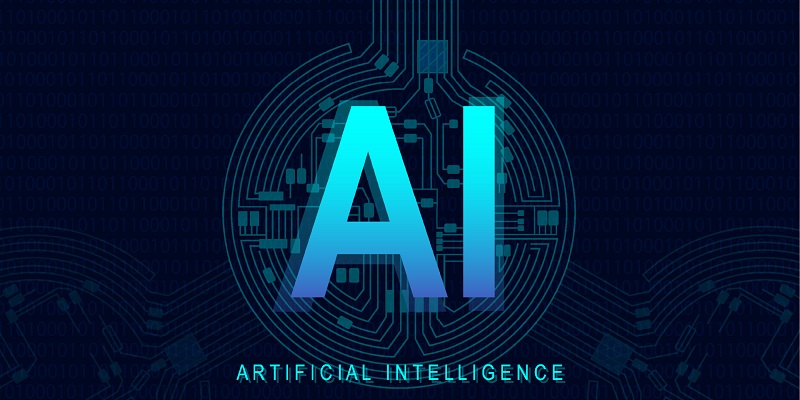With the rapid advancements in technology, AI has emerged as a game-changer in the world of digital marketing. It has revolutionized the way businesses optimize their online presence by delivering improved search results and enhanced user experiences. From comprehensive keyword research to streamlining content creation and personalized marketing strategies, AI has significantly transformed the landscape of SEO and content marketing.
Comprehensive keyword research: AI as a game-changer in expanding traditional methods
Traditionally, marketers relied on manual keyword research to identify relevant terms and phrases to optimize their content for search engines. However, AI has taken this process to new heights. AI-powered tools leverage machine learning algorithms to analyze vast amounts of data and provide comprehensive insights into user search behavior. By understanding user intent, AI facilitates more accurate keyword targeting, enabling businesses to create content that aligns with what users are actively seeking.
Streamlined content creation: AI-powered tools for generating high-quality and relevant content
Creating valuable and engaging content consistently can be a challenging task. However, AI-powered content generation tools have streamlined this process. These tools use natural language processing algorithms to analyze existing content, identify patterns, and generate original and relevant articles, blog posts, and other forms of content. This not only saves time but also ensures high-quality output, freeing up marketers to focus on other aspects of their strategy.
AI’s ability to personalize content according to individual preferences and needs
One-size-fits-all approaches to marketing are becoming outdated as consumers increasingly seek personalized experiences. AI plays a crucial role in developing targeted content that caters to the specific preferences and needs of individual users. By analyzing vast amounts of user data, including browsing history, purchase behavior, and social media interactions, AI algorithms can create highly personalized content recommendations, offers, and messages. This level of personalization not only enhances user engagement but also improves conversion rates.
Effective content promotion: AI-driven strategies that maximize marketing campaign reach and impact
Creating exceptional content is only half the battle. To maximize reach and impact, businesses need effective content promotion strategies. AI-driven tools can analyze data from various sources, including social media, website analytics, and demographic data, to identify key trends and consumer preferences. This valuable information allows marketers to target their campaigns more effectively, ensuring that content is reaching the right audience at the right time, leading to improved customer engagement and brand visibility.
Enhanced website usability: AI tools for analyzing user interactions and making real-time adjustments
Understanding user behavior is essential for optimizing website usability. AI tools enable businesses to analyze user interactions in real time, identify patterns, and make data-driven adjustments to improve the overall user experience. For example, AI-powered chatbots can offer instant and personalized customer support, enhancing user satisfaction. Additionally, AI algorithms can analyze click-through rates, bounce rates, and other metrics to identify areas of improvement and make real-time adjustments to optimize website performance.
Automation of SEO tasks: AI’s role in increasing productivity and optimizing resource utilization
Traditionally, SEO tasks required significant time and effort, especially when it involved repetitive tasks such as meta tag optimization or link building. However, AI has automated these processes, leading to increased productivity and better utilization of resources. AI algorithms can automatically analyze website elements and provide recommendations to optimize on-page SEO. Moreover, AI-powered tools assist in automated link building by identifying high-quality backlink opportunities and monitoring their effectiveness, saving marketers precious time and effort.
Valuable insights: AI’s processing and analysis of massive volumes of data empower marketers
The ability of AI to process and analyze massive volumes of data has empowered marketers to gain valuable insights into consumer behavior and preferences. By leveraging machine learning algorithms, AI can identify patterns and trends in data that would be nearly impossible for humans to detect. This invaluable information enables businesses to make data-driven decisions, refine their marketing strategies, and target their efforts more effectively. AI’s data processing capabilities have enabled marketers to stay ahead of the competition and make informed decisions based on real-time data.
Ethical considerations: The importance of addressing potential risks of data misuse and privacy breaches
While AI presents numerous opportunities for marketers, it also comes with ethical considerations. The potential risks of data misuse and privacy breaches are of paramount importance. Businesses must prioritize data security and transparency and ensure that user data is handled responsibly. Implementing robust data protection measures and complying with relevant regulations can help mitigate these risks and establish trust with consumers.
Future prospects: Continuous advancements in machine learning, natural language processing, and predictive analytics in AI marketing
The future of AI in marketing appears promising, with continuous advancements in machine learning, natural language processing, and predictive analytics. As AI technologies continue to evolve, marketers can expect even more sophisticated tools that offer enhanced data analysis, improved content personalization, and better automation capabilities. With AI’s ability to process vast amounts of data and deliver valuable insights, it will continue to empower marketers and revolutionize the way businesses optimize their online presence.
In conclusion, AI has transformed the landscape of Search Engine Optimization and content marketing, revolutionizing the way businesses optimize their online presence. From comprehensive keyword research to streamlined content creation, AI-powered tools have allowed marketers to improve efficiency and deliver high-quality, personalized content. AI-driven strategies have proven highly effective in maximizing the reach and impact of marketing campaigns. Additionally, AI tools enable businesses to analyze user interactions, make real-time adjustments, and automate various repetitive SEO tasks, leading to increased productivity and resource utilization. However, considering the potential risks of data misuse and privacy breaches, ethical considerations are crucial. Nonetheless, the future prospects of AI in marketing are promising, with continuous advancements in machine learning, natural language processing, and predictive analytics empowering marketers to gain valuable insights and refine their strategies.

